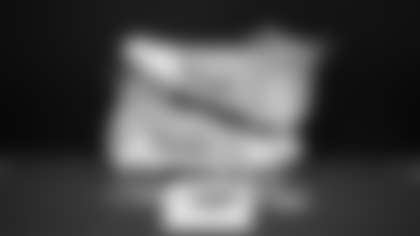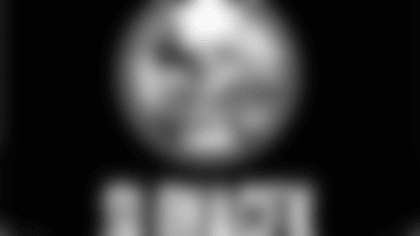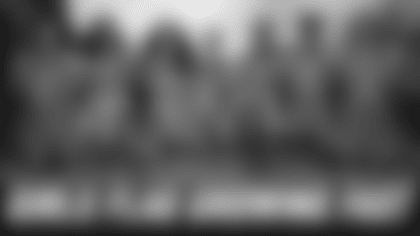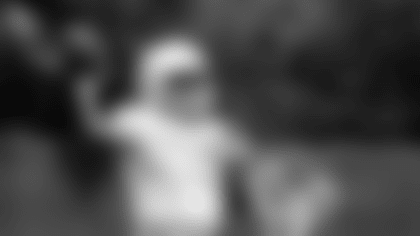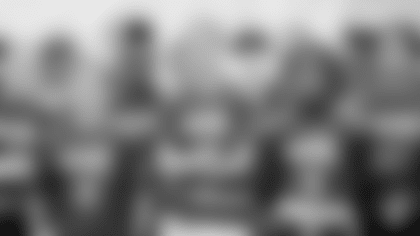After an extended hiatus in which he was deeply immersed in thought (and free weights), Texans strength and conditioning coach Dan Riley has made his triumphant return to the popular Fitness Corner column.
Riley and assistant strength and conditioning coach Ray Wright will continue to post selected answers to your questions throughout the year. Join in by shooting over an e-mail to fitness@houstontexans.com.
Here is an archive of past columns. Dan and Ray have also made the club's strength and conditioning manual available. Click here to download it.
We have received many questions regarding our "No Hands (NHR)" routine. It is currently one of nine different upper body routines our players have to choose from. Our players sometimes perform the NHR as a change of pace. If there is an injury to fingers, hands, wrists, or elbows, our players perform this routine out of necessity.
This happens quite frequently and usually goes unnoticed by the fan. Our players hurt one of these body parts during a game yet are able to continue playing and finish the game.
On Monday morning when they arrive to lift they are unable to perform conventional exercises that involve gripping, pushing, or pulling. Some athletes simply stop lifting when this happens. We can't let this happen to our players because strength is lost rapidly. The athlete at some point will return to competition and we don't want him to be any less prepared physically than he could be.
We have a well-equipped facility with equipment needed to administer a NHR. If you are an athlete and don't have access to isolation exercises, you can manufacture a Manual Resistance Routine, or find a local health club that may offer a better selection of single-joint movements.
The NHR is a series of single-joint or isolation exercises designed to develop each of the major muscles in the upper body. Our athletes don't have to hold, push, or pull, on a piece of equipment to perform these exercises. The hands and elbows are uninvolved.
An isolation exercise is designed to target a muscle group or an area of the body. An example of a single joint exercise is the Nitro Rear Delt (examples: 1; 2). The Nitro Rear Delt is designed to isolate and develop the upper back muscles. The fingers, hands, wrists, and elbows, are not needed to perform this exercise.
The conventional seated row is a multi-joint (wrist, elbow, shoulder) exercise also designed to develop the upper back muscles. The fingers, hands, wrists, and elbows, are needed to perform the seated row exercise.
While performing any seated row (or bent-over row with barbell or dumbbell), the hands and elbows must be used. This is not possible if our athlete has an injury to his finger, hand, wrist, or elbow.
Jason Bell is one of our standout special teams players. During the game against the Eagles he broke his arm while covering a punt. His arm is now in a cast, which prevents him from performing any of the traditional pushing and pulling exercises in our program. He is unable to perform any upper body multi-joint exercise for some time.
Significant atrophy (loss in muscle strength and size) will occur if he stops lifting. The NFL season is a long one. Jason can't afford to suffer the negative consequences of not lifting for any length of time.
Jason has already returned to the practice field and is currently performing a total body workout. He is using our No Hands Routine to train his upper body. He will continue to perform the NHR until Texans Head Trainer Kevin Bastin, tells us that Jason can safely begin performing exercises with the use of his hands.
We thank Jason Bell for demonstrating our No Hands Routine.
We incorporate manual resistance exercises for the biceps and triceps.
Don't let an injury stop you from lifting. Put together your own No Hands Routine. You can use it periodically to alleviate boredom in your training. To stimulate maximum overall strength our healthy players include both single joint and multi-joint exercises.
Again we'd like to thank Jason Bell and wish him an expeditious recovery.
Go Texans!


